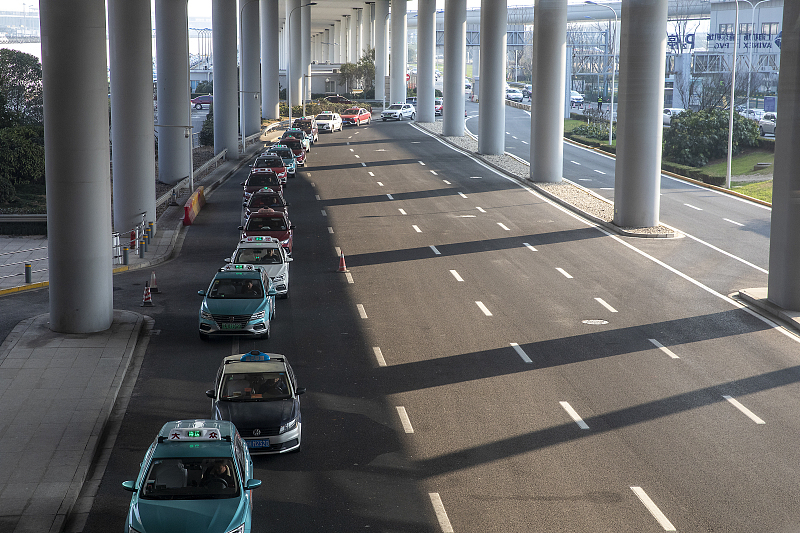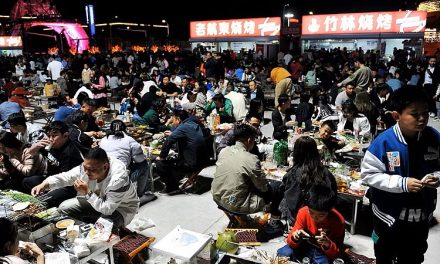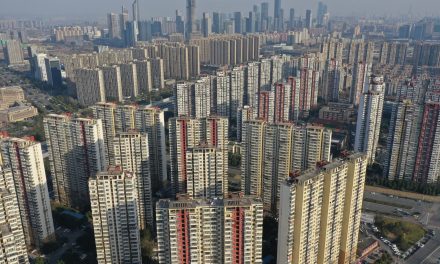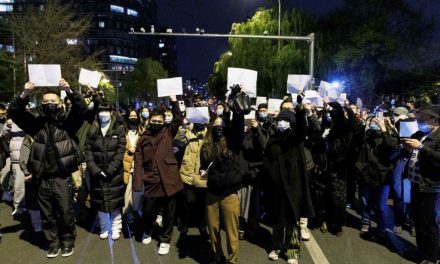By Niu KeSi
On January 29, 2024, the Shanghai Municipal Road Transport Administration issued its “Notice of Prohibition of Online Ride-hailing Operations at Pudong Airport,” which stipulated that “online ride-hailing is strictly prohibited within the Pudong Airport area.” In the following days, on multiple mobile taxi-hailing apps, people were unable to upload taxi-hailing information in the relevant areas of Pudong Airport. Soon, this matter triggered strong dissatisfaction among online ride-hailing operators and foreign tourists in Shanghai, leading to growing opposition.
Just five days later, on February 4, the Shanghai Municipal Transportation Commission issued a notice allowing resumption of online car-hailing operations in the Pudong Airport area. Passengers can now reserve cars in the Pudong Airport area through various online car-hailing platforms.
What is the meaning of this sudden ban, followed by an equally sudden reversal?
Note first that the ban was illegal. The Shanghai Municipal Road Transport Administration’s initial prohibition of online ride-hailing services soliciting passengers at Pudong Airport violated citizens’ right to freedom of business operations. As early as 1689, the British thinker John Locke pointed out in his famous work “A Treatise on Government” that the reason humans set up governments is to protect the people’s life, liberty and property, except for essential reasons. The government cannot deprive people of this constitutional right. On February 2, after the ban had been issued, You Yunting, a senior partner at the Shanghai Dabang Law Firm, told Nandu reporters that the notice violated many controlling laws and regulations and should not pass any review of its consistency with fair competition. [1]
Secondly, in the process of formulating administrative regulations, it is necessary to strictly follow the legislative procedures prescribed by law. In order to prevent the government from illegally depriving the people of their constitutional rights, the law does have many provisions regulating its behavior. For example, it requires that administrative agencies to hold hearings on their proposed measures, and that the content of such measures must comply with provisions of the Anti-Monopoly Law and other laws, to ensure that subjects of administrative measures receive equal protection from the government. In Western countries, because the judiciary is independent, if an administrative agency violates the law, the agency responsible for the administrative act will bear legal responsibility.
Therefore, in the process of formulating administrative regulations, their administrative agencies will hold hearings, because listening to the different opinions of potential administrative targets can help administrative agencies improve their legal awareness and avoid violating the law. However, in China, because the judiciary is not independent, even if administrative actions violate the law, the person in charge will not be legally punished. Therefore, the Communist Party introduced the hearing system not to prevent administrative violations, but to pretend to be democratic. This is the reason why the Communist autocratic government keeps shouting about governing the country according to the law, yet in its actions it does not take the law into consideration at all.
The Chinese Communist Party introduced the hearing system in the 1990s, but people quickly discovered its hypocrisy. For example, hearings on prices were found to be a complete show. The result of each hearing was to support the government’s price increase. Opposition to price increases is unlikely to be adopted by the government after such hearings. In light of this, from January 6 to 14, 2010, the Price Department of the National Development and Reform Commission specifically invited relevant experts to publish six consecutive articles in its hearings entitled “Series of Talks on Current Issues in Price Hearings,” on whether the price hearings themselves are for real or for show. People were asked about whether they agree with the statements, “Every time there is a hearing on whether prices can rise, they will,” or “Every time prices are to rise, the government must listen.” Are consumers represented in such hearings? Do the irregularities in them indicate something fishy? What role do the hearings play? Answers were given to six widely asked questions, including how price hearings can be made more open and transparent, in an attempt to dispel people’s doubts about government hearings. [2]
But facts speak louder than words. Let us look at a specific example to understand how the Communist Party treats its hearings. At the end of 2010, in order to reduce financial pressure, the Kunming Municipal Government did not find ways to streamline government agencies, but instead targeted the elderly. It wanted to stop the welfare card that allows the elderly to ride city buses for free, but the law stipulates hearings are necessary to introduce such a policy. The city government instructed the Transportation Bureau to hold such a so-called “hearing” on December 24. The elderly people participating in the hearing were basically delegates found by the government in advance. They were more concerned about the government’s financial difficulties than the government itself, and expressed their understanding and support for the government’s policy of canceling the special card for the elderly. Yang Xiaobiao, a citizen who went to the hearing without being invited by the government, was violently attacked by government staff with a full mineral-water bottle because he raised objections. The Kunming Municipal Government’s fraud at the hearing completely exposed the CCP’s pseudo-democratic face.
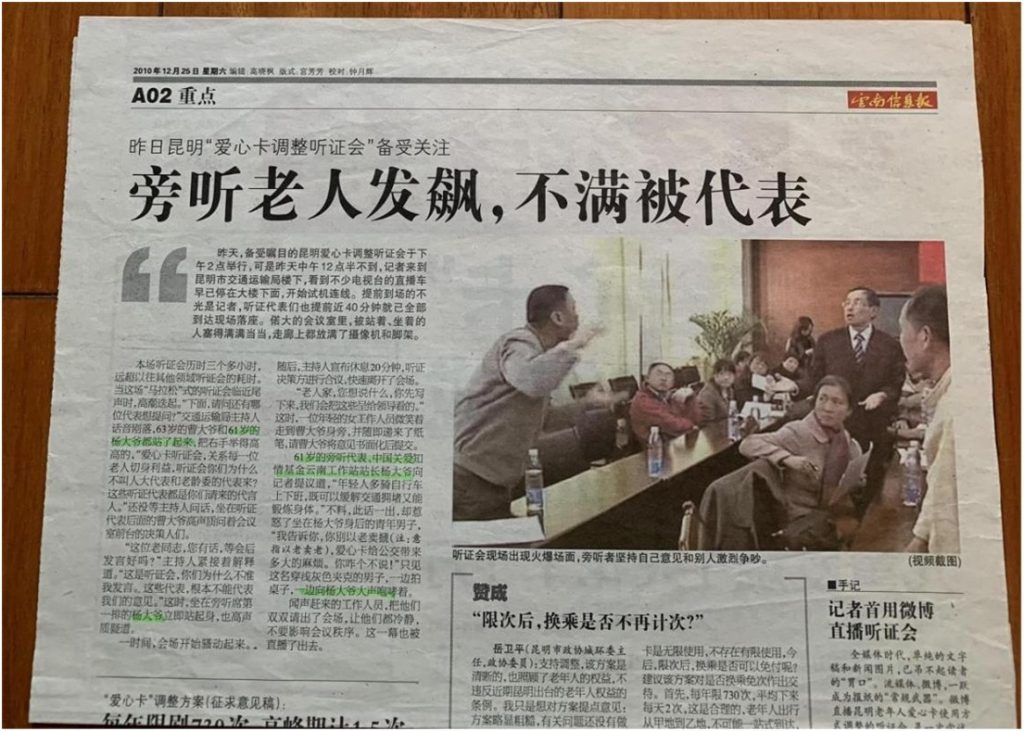 The person on the right standing and wearing a suit standing is Yang Xiaobiao, and the person on left, with his hand in the air and seemingly very exercised. is a government worker
The person on the right standing and wearing a suit standing is Yang Xiaobiao, and the person on left, with his hand in the air and seemingly very exercised. is a government worker
Third, it is impossible for governance in a society ruled by man to be universally scientific and reasonable. Only the rule of law can continuously protect people’s life, freedom, and property. At the time when the Shanghai Municipal Road Transport Administration banned online ride-hailing services from operating at Pudong Airport, cities such as Beijing and Guangzhou were actually encouraging online ride-hailing services to go to airports and other hubs to pick up orders. Such unsettling policy contrast often occurs in authoritarian countries, and the example of Zibo City, Shandong Province is prominent among them. While urban-management officials in all cities across the country were evicting vendors, Zibo City required its own such officials to provide assistance to them. Autocratic countries often hope to see example-setting by particular local governments as a useful way to drive other local governments across the country to follow suit. This is completely a rule-of-man mentality. Only when a country implements a democratic system of decentralized checks and balances, including judicial independence, and truly puts the right to supervise the government’s administration according to law into the hands of the people, can it put an end to such phenomena as the Shanghai Transportation Bureau’s arbitrary law enforcement.
Finally, the sequence shows that supervision through public opinion is indispensable for government administration according to law. If the country is compared to a community, then the government is just like a real-estate company hired by the people to manage the community. Of course, the community owners have the right to evaluate whether the property-management company is good or not. If most owners think that it is well-managed, there is no need to praise it, just support it in continuing to serve the community; if most owners in contrast think that the company is not well-managed, they can entrust their homes to other companies after the contract expires. Either way, just let the company manage its affairs. What is particularly worth mentioning is that it is always the owner’s right to criticize the property-management company. Even if most owners are satisfied with the company, the minority owners still have the right to criticize it. This right to criticize in general does not depend on the specific nature of the critic’s property. Regrettably, the authoritarian state has completely reversed this relationship. But as soon as China’s authoritarian government took power, it turned against the “residents” and completely deprived the “owners” of the right to criticize the government. No matter whether did its job well or not, it did not allow the people to criticize it, and it also created and insisted that various media including music, movies, newspapers, and now voices on the Internet sing its praises. Although there have been occasional instances where the Shanghai Municipal Transportation Commission corrects its mistakes due to the pressure of public opinion, most of the time it turns a deaf ear, presenting a face that says, “I am a gangster, I need fear no one!” Public opinion even acts as a negative stimulus. Instead of correcting its mistakes due to the pressure of public opinion, the government cracks down on the media and authors who criticize, leading the country to fall into a situation where the people are stampeded into sullen silence, are taught to keep moving and ask no questions.
As a whole, the ban and un-ban on online ride-hailing at Pudong Airport shows that China urgently needs to change the rule of man and implement the rule of law. After the ban was issued, some lawyers pointed to the illegality of the policies issued by the Shanghai Road Traffic Administration [3]. This shows that the level of knowledge in China’s legal profession has reached the heights of awareness of the implementation of the rule of law, so China’s current problems are not a lack of knowledge. The problem is at the level of the political system. The authoritarian system allows government officials to avoid taking any responsibility for breaking the law. When they encounter problems, they do not solve them, but find ways to make them go away. Without the implementation of a constitutional democratic system of separation of powers and checks and balances, it is impossible to make China a country governed by the rule of law. All “laws” will thus be in vain, save as a technique for addressing political problems.
Notes (all in Chinese):
[1]https://new.qq.com/rain/a/20240202A08L8N00/
[2]https://www.ndrc.gov.cn/fzggw/jgsj/jgs/sjdt/201001/t20100127_1109693.html
[3]https://new.qq.com/rain/a/20240202A08L8N00/
Images from Caixin website.
This piece was translated from Yibao Chinese. If republished, please be sure to add the source and link https://www.yibao.net/?p=247717&preview=true before the text when reposting.
The views of the author do not necessarily represent those of this journal.

